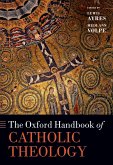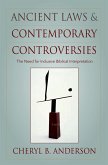Divine forgiveness is expressed in biblical and liturgical contexts through a variety of metaphors-canceling debts, covering stains, forgoing or stopping litigation, forgetting iniquities, and more. In this study, Cristian F. Mihut retrieves a theologically paradigmatic, liturgically deep, and symbolically evocative image of divine forgiveness that has received little attention: bearing burdens. Gracious Forgiveness: A Theological Retrieval articulates a divine disposition to forgive starting from this metaphor. Embedded in a larger covenantal-relational framework where sin is a cosmic sickness, humans are targets of divine healing, and divine transcendence is expressed through inexhaustible gracious commitments to redress brokenness, divine forgivingness finds its most lucid, tangible, and full expression in the life and work of Jesus Christ. In the person of Jesus Christ, we see most clearly how a gracious God is committed to separating sinners from their sin, and how God heals people by absorbing into God's own being the consequences of their offense. A second main argument of the book is that sin-bearing Christological forgivingness has ethical and relational ramifications. The study articulates a human disposition to forgive-forgivingness-that involves both a certain conception of one's participation in Christ and a certain formation of one's sensibility. Entrenching forgivingness depends at once on developing gracious, hopeful, and merciful dispositions, but also on seeing oneself as a continuant of God's cosmic story of redressing brokenness. Mihut concludes with a defense of the surprising claim that curative forgivingness is compatible with anger, and even recommended to people living under oppression.
Dieser Download kann aus rechtlichen Gründen nur mit Rechnungsadresse in A, B, BG, CY, CZ, D, DK, EW, E, FIN, F, GR, HR, H, IRL, I, LT, L, LR, M, NL, PL, P, R, S, SLO, SK ausgeliefert werden.









